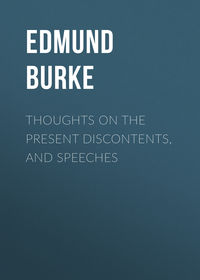Kitabı oku: «Thoughts on the Present Discontents, and Speeches», sayfa 8
Bir şeyler ters gitti, lütfen daha sonra tekrar deneyin
Türler ve etiketler
Yaş sınırı:
12+Litres'teki yayın tarihi:
04 ağustos 2018Hacim:
180 s. 1 illüstrasyonTelif hakkı:
Public Domain